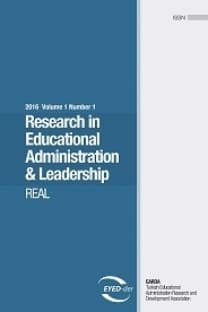Becoming an Educational Leader for Social Justice: A Micro/Meso/Macro Examination of a Southern U.S. Principal
This descriptive case study examined how a principal in an urban elementary school in the southern United States became a leader working for social justice in education. The principal cited her parents’ values as contributing to her own seemingly countercultural beliefs and behaviors relating to racial and ethnic diversity, and described schools as essentially middle class phenomena, requiring students and teachers on either side of the class divide to become bicultural. The principal enacted a vision for empowering her students with the same support and freedom of choice available to members of more privileged segments of society. Evidence of interdependent micro, meso, and macro contexts, nonlinearity, and self-organization in the complex system relate the framework of the study to theories of complex systems, offering opportunities to apply understandings of complex systems to the problems of social justice leaders.
___
- Angelle, P. S., & Ogden, S. B. (2014). Social justice beliefs and behaviors: A macro/meso/micro look at one urban and one rural principal. Paper presented at the University Council for Educational Administration (UCEA) annual convention, Washington, DC.
- Barbera, E. (2004). Quality in virtual education environments. British Journal of Educational Technology, 35(1), 13-20.
- Bar-Yam, Y. (2004, March). Multi-scale variety in complex systems. Complexity, 9(4), 37-45.
- Bryk, A. S., & Schneider, B. (2002). Trust in schools: A core resource for improvement. New York: Russell Sage Foundation.
- Yayın Aralığı: Yılda 4 Sayı
- Yayıncı: Dokuz Eylül Üniversitesi
Sayıdaki Diğer Makaleler
Women Becoming Social Justice Leaders with an Inclusive View in Costa Rica, Mexico, and Spain
Charles L. SLATER, Gema Lopez GOROSAVE, Patricia SİLVA, Nancy TORRES, Adriana ROMERO, Serafín ANTÚNEZ
Charles L. SLATER, Gema Lopez GOROSAVE, Patricia SİLVA, Nancy TORRES, Adriana ROMERO, Serafín ANTÚNEZ
